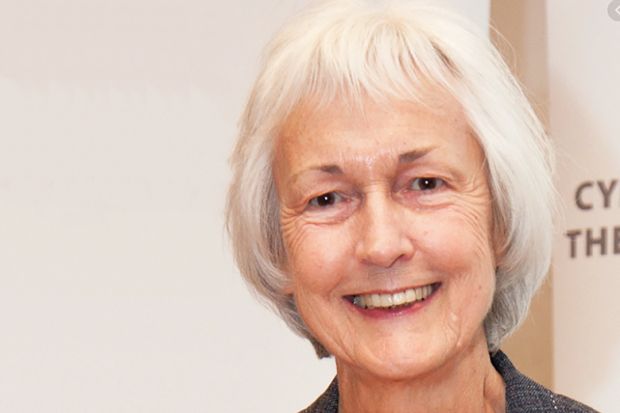A pioneering critic whose interests ranged from Shakespeare to mass-market romantic fiction has died.
Catherine Belsey was born in Salisbury in 1940 and educated at Godolphin and Latymer School in London before going on to Somerville College, Oxford in 1959, where, she recalled 50 years later, she “relished the central heating (new to me), the huge old baths…and the close camaraderie a corridor provided”. In 1966, after briefly working outside the academy, she went to the newly created University of Warwick for an MA and then a PhD (1973) and taught at what is now Murray Edwards College, Cambridge.
After joining what is now Cardiff University as a lecturer in English in 1975, Professor Belsey would remain there until 2006. She was promoted to professor of English in 1989 and to distinguished research professor in 2002, although her concerns about “the mounting bureaucracy” of university life led her to go part-time in 2003. She would later take up part-time posts at both Swansea University and the University of Derby.
In the 1970s, Professor Belsey once wrote, the study of English literature was “looking distinctly dusty”. Her many acclaimed books – including Critical Practice (1980), Shakespeare and the Loss of Eden (1999), Poststructuralism: A Very Short Introduction (2002), Criticism (2016) and Tales of the Troubled Dead: Ghost Stories in Cultural History (2019) – helped to revivify it by bringing canonical literary works into dialogue with feminism, social history, material culture and far less prestigious texts.
In her 1994 book Desire: Love Stories in Western Literature, Professor Belsey explained recently, she had written about “Donne and Tennyson, as well as Jeanette Winterson and Julian Barnes, but I also brought in mass-market romance and the way its metaphors define sex as a disaster. I didn’t feel I was slumming when I read Mills and Boon, and I did think all those earthquakes, floods and tempests revealed something about our culture.”
Late in her life, recalled Lyndsey Stonebridge, professor of humanities and human rights at the University of Birmingham, “Catherine Belsey wrote: ‘Literature limits. It sets up borders and boundaries.’ Her career was dedicated to taking down those borders. Her pithy but hugely influential Critical Practice opened up theory to a generation of students. The exhilarating The Subject of Tragedy [1985] showed where the development of modern Renaissance man placed – and often left – women.
“I have a warm memory of her dancing at a conference in Bordeaux in the early 1990s. She taught us that life, like literature, was for critical, intense, but joyous living.”
Professor Belsey died following a stroke on 14 February.




